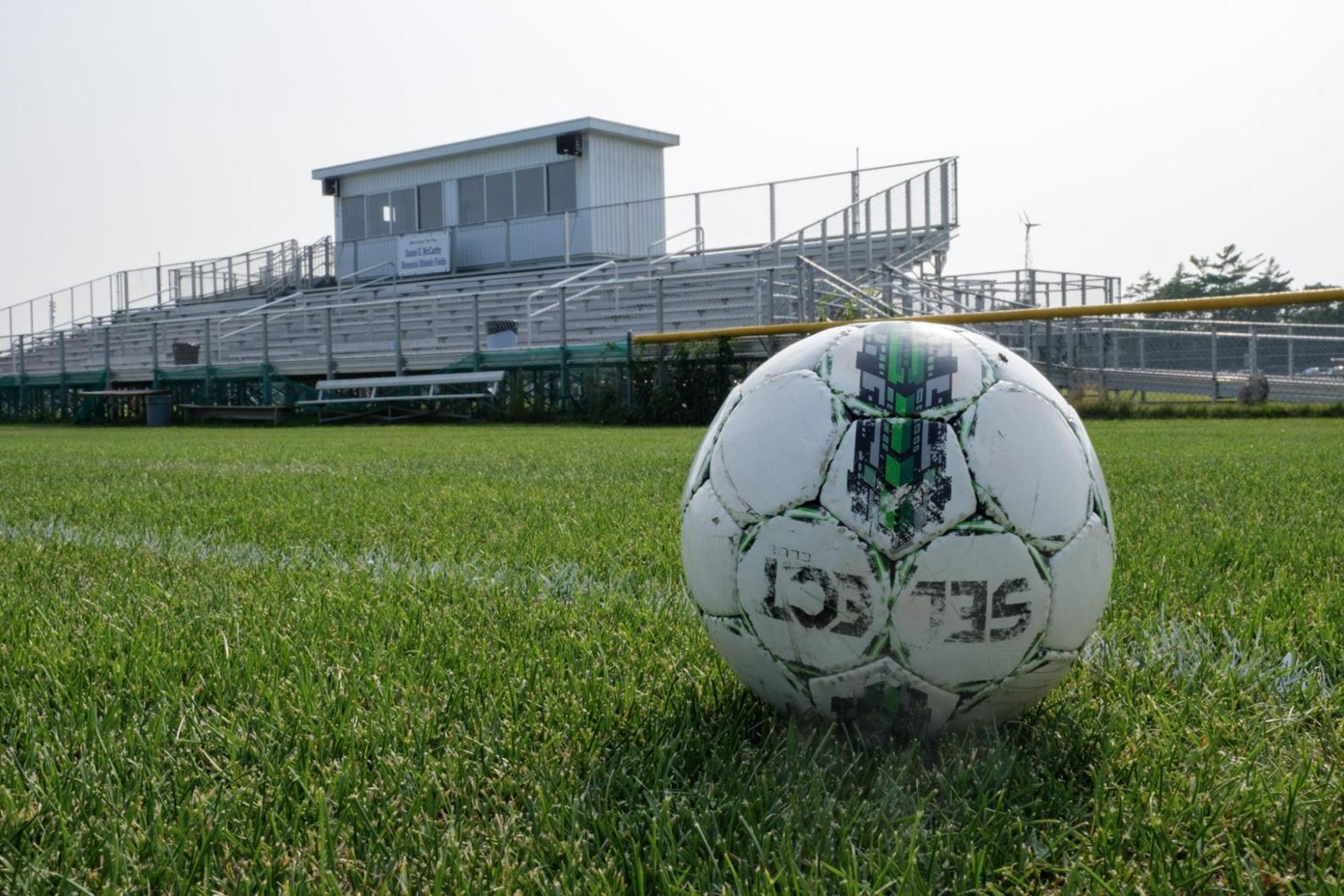The Martha’s Vineyard Regional School committee is seeking a commitment from Oak Bluffs not to appeal a judge’s ruling in the ongoing dispute over a proposed artificial turf playing field.
Last week, a state Land Court judge ruled that the town planning board overstepped its authority when it denied the school’s plans for a synthetic field on the basis of water quality concerns.
In his 13-page decision, Judge Kevin Smith told the parties to come up with a joint status report for the court prior to a further hearing.
Monday night, school committee members voted 7-1-1 in favor of signing a draft agreement that states both sides will accept the judge’s decision and not appeal.
The school will send the proposal to Oak Bluffs, but one planning official said the town hasn’t signed off on any such language yet and is still discussing the implications of the judge’s decision.
“Our attorney doesn’t have any guidance or direction yet from any town officials on what would be acceptable or not acceptable,” planning board chair Ewell Hopkins said.
School attorney Brian Winner said the draft agreement is all that’s needed to close the lawsuit that was initially filed in June 2022. Mr. Winner also contended that, with the judge’s ruling, the school can build the turf field without permission from Oak Bluffs.
“There’s nothing left for the land court to hear,” he said.
In Massachusetts, educational and religious projects are exempted from some zoning restrictions. There are some exceptions, but Judge Smith’s decision found that water quality doesn’t fall under any of them.
The ruling removes the Oak Bluffs planning board’s only formal basis for denying the track and field overhaul, leaving the project approved by default, Mr. Winner said Monday.
“The only thing they relied upon, the judge just ruled is outside their authority,” he said.
“There is no special permit requirement attached to this any longer.”
A draft of the agreement had already been provided to Oak Bluffs town counsel Michael Goldsmith. The town and the school are supposed to report back to the court by Oct. 5.
If Oak Bluffs has not responded to the proposed agreement by then, Mr. Winner said, he will indicate that in his reply to the judge.
“My expectation would be to report to the court — whether jointly with attorney Goldsmith or, if necessary, unilaterally — that we don’t need a trial,” he told the school committee.
“The court should declare [that] the project can proceed,” Mr. Winner said.
“There’s no reason either party should be spending any money, any resources, any further time: The case is over.”
School committee members Robert Lionette voted against the agreement and Roxanne Ackerman abstained.
Mr. Hopkins planned to give his board an update at its meeting this week.
He did say the school’s current site plan is expired and the district would have to apply again, as well as go back before the Martha’s Vineyard Commission. The planning board also hasn’t asked for any kind of settlement language.
“Several steps are still required,” Mr. Hopkins said.
If Oak Bluffs does not accept a final ruling in land court, Mr. Winner said, the town’s next recourse would be state appellate court, where a three-judge panel would review the written record of the case.
Under pressure from several Island towns earlier this year, the committee agreed to stop using high school legal funds for the lawsuit against Oak Bluffs.
Mr. Winner’s fees are being paid out of a pair of cash donations, totaling $5,000, from multiple anonymous donors in support of the legal action.
His last invoice was for $1,962.50, leaving more than $3,000 still available, high school finance director Suzanne Cioffi said.
After Mr. Lionette raised concerns on. Monday about the donations’ legality, committee chair Kathryn Shertzer and Island superintendent Dr. Richard (Richie) Smith said they recently consulted with another specialist attorney who confirmed that anonymous cash gifts to schools are acceptable under state law.
Ethan Genter contributed to this story.






Comments
Comment policy »